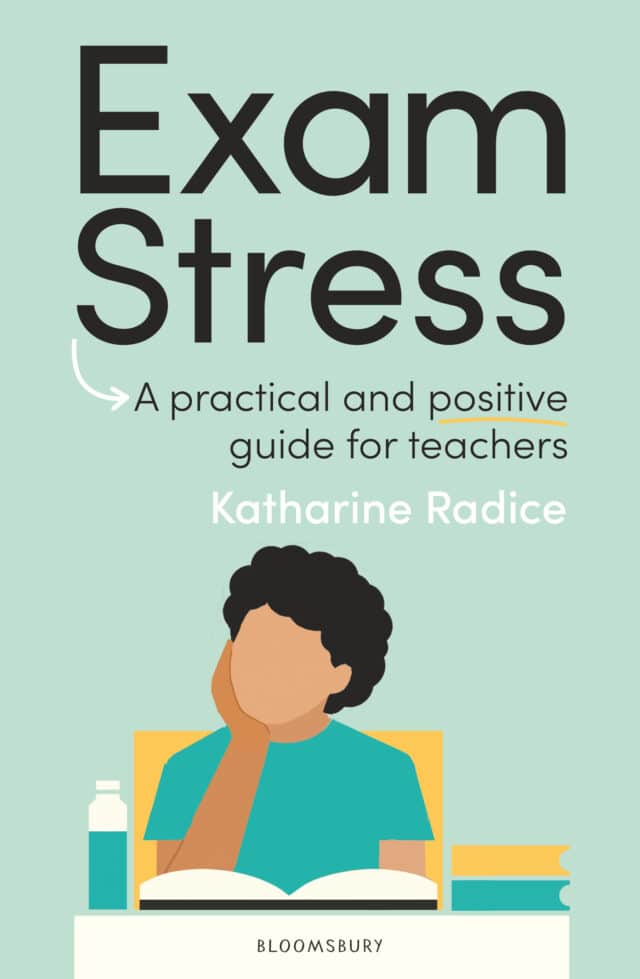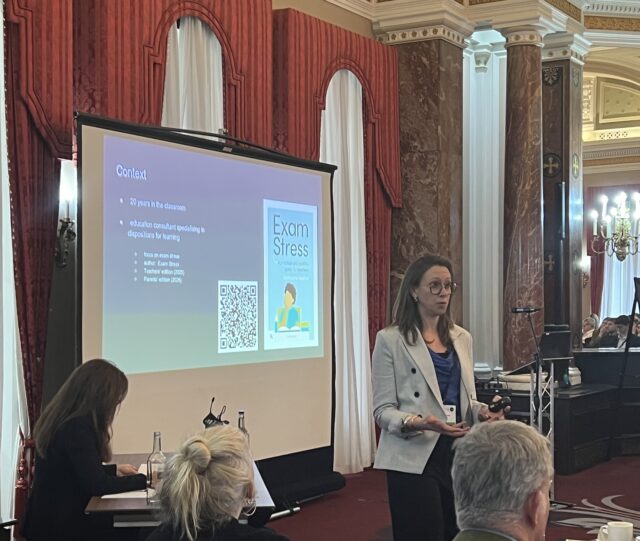Blog
Exam stress – how can we help our students?

Katharine Radice
Education Consultant
Read the blog
HMC asked me to lead a session on exam stress at their conference for Sixth Form Leaders. The session was based on material from my new book – Exam stress: A practical and positive guide for teachers (Bloomsbury). It was great to have the chance to talk about this topic with Sixth Form Leaders from schools across the country – and internationally – and to reflect on the challenges that schools encounter in trying to support students through the stress of exams.
Stress is not always problematic; we’ll all know students who need a bit of pressure to spur them on. What’s more, stressful situations at school can be a useful training ground for learning how to handle stressful situations in the future. Stress does have a tipping point, though, and when the stress levels rise too high, it becomes harder – not easier – for students to stay healthy and achieve their potential.
I asked the conference room what the signs of problematic stress levels were. The answers came thick and fast: a student who is angry in class and arguing with their teacher; the student who can’t switch off, pumping out past paper after past paper; the student who finds it harder and harder to be at school or in lessons; the student who feels they have to give up their extracurricular; the student who is disengaged and unhappy but doesn’t want to talk about it. The nods of agreement in the room signaled that this is familiar territory for us all.
Our discussion focused on the following question: how can we, as teachers, help our students navigate the inevitable stress of exams in a way that reduces the risk that stress levels rise problematically high? When I was writing Exam Stress, I interviewed students, teachers and mental health professionals from across the country. I wanted to understand better the factors which made exam stress difficult for students to deal with. During these interviews, three factors came through frequently.
The first factor is that – whatever our predictions might indicate – grades are never guaranteed and students don’t really know how they’ll find the exams until they’re sitting in the exam room. This uncertainty lasts for a long time and it can be grueling for students. The inevitable uncertainty about outcomes brings with it the difficult question of whether students are doing enough for the grades they want. Many of the students I interviewed said that it wasn’t the grades they feared, it was the risk of self-blame afterwards: if things didn’t go well, they feared that they’d regret their decisions along the way.
The second factor is that revision decisions are difficult. Often, as teachers, we give students a broad overview of the work they could be doing: we offer them links to different websites, provide access to lesson powerpoints and revision resources, we share plenty of practice materials. All of this is useful but the quantity of options increases the complexity of revision planning. This complexity can become overwhelming and – for some students – the difficulty of deciding where to start can lead to procrastination and disengagement. Alternatively, some students find it almost impossible to stop working, fearing that if they don’t do everything they possibly could do, they’ll be at fault in some way.
The third factor is that the run-in to exams lasts for a really long time. It’s a marathon, not a sprint: these are probably familiar words but it’s worth pausing to think about quite how long the marathon is. For students who have started to think about GCSEs in Y9, by the time they sit the exams for real, they’ll have been thinking about GCSEs for well over two years. For them – as 16 year olds – this is a very long time. The length of the marathon increases the feeling that GCSEs matter because they’ve been in view for so long.
So, as teachers, how can we help our students manage their exam stress? First, we can help them by separating the controllables from the uncontrollables. We can encourage them to focus on the process, rather than the outcomes, reminding them that the bit they can control is making sensible decisions about what to do today and tomorrow. Second, we can help them with these decisions, encouraging them to be realistic about what a sensible work rhythm looks like. When they are planning their revision, we can ask them to work out the time available to them and then listen to their thoughts about their priorities in that time. We can make sure that the resources we share are appropriate to the time available so that students do not feel overwhelmed.
Thirdly, we can help our students – and their parents – understand how to re-fuel during the marathon. Building in breaks, maintaining balance, doing things that are enjoyable – all of this helps maintain energy levels. We can remind parents that if their children are grumpy at times, that’s understandable: during exam preparation their children are likely to need a lot of TLC, patience, love and support. As any marathon runner will tell you, when the crowd cheers the runners on it’s usually a lot more constructive than telling them to run faster.

Katharine’s book is available for pre-order via this link. If you’re interested in hearing more about practical ways to support your students – or if you would be interested in booking her to lead a workshop or information session for parents – you can get in touch with her via her website, www.katharineradice.co.uk



